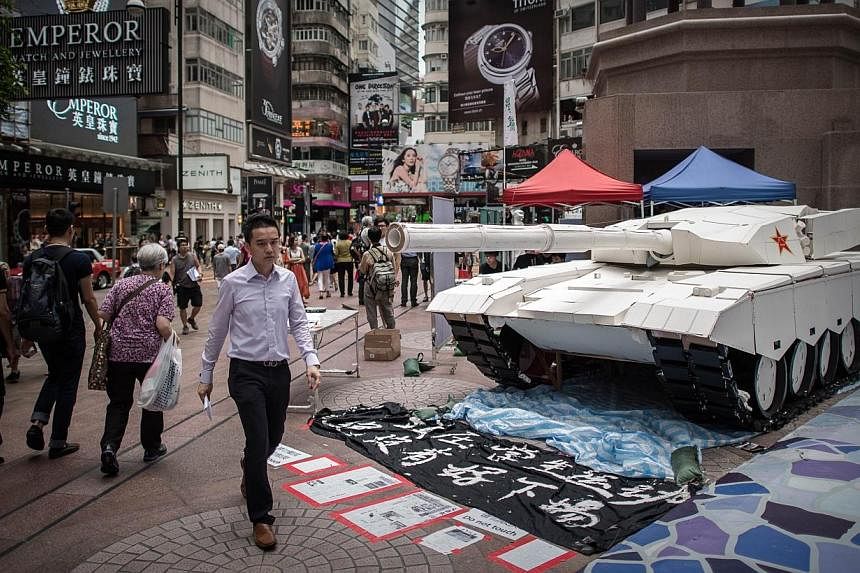TAIPEI (AFP) - Taiwan on Tuesday urged China to face up to history and protect the rights of dissidents on the eve of the 25th anniversary of the Tiananmen Square crackdown.
"The unfortunate history of the 'June 4 incident' cannot be forgotten and only by facing history can (China) heal the wounds, transform and move forward," said the Mainland Affairs Council, Taiwan's top policy-making body on China.
"The mainland authorities should show sincerity to be responsible and to reconcile, and treat the 'June 4' victims and their families well," it said in its annual statement marking the incident.
The council also called on Beijing to respect and tolerate different opinions in society and protect the human rights of its dissident and activists.
Taiwan's government has repeatedly urged China to learns lessons from the 1989 crackdown on pro-democracy protesters, during which troops killed hundreds of unarmed civilians - by some estimates more than 1,000.
Beijing still considers the Tiananmen incident a "counter-revolutionary rebellion" and has refused to acknowledge any wrongdoing or consider compensation for those killed.
"There is not much new in this year's statement but at least Taiwan is showing its position and concerns on the June 4 incident," said George Tsai, a political analyst at the Taipei-based Chinese Culture University.
"Its statement is mild as Taiwan has to consider the broader picture of improving cross-strait ties."
Relations have improved markedly since President Ma Ying-jeou took office in 2008 on a Beijing-friendly platform. He was re-elected in 2012 for a final four-year term.
Public surveys in Taiwan have indicated that despite ever closer economic ties with the mainland, an increasing number of Taiwanese oppose reunification - citing authoritarian rule in China as a key reason.
Anti-China sentiment mounted in Taiwan earlier this year when a group of young protesters occupied parliament in protest at a controversial services trade pact with China.
Opponents see the deal as damaging Taiwan's economy and leaving it vulnerable to political pressure from China, which still claims sovereignty over the island despite their split in 1949 after a civil war.

